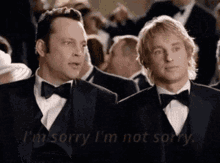Nameless Range
Well-known member
I am an advocate for stopping the growth of NR pressure in Montana, and even reducing it. I'm not convinced the financial solutions are insurmountable on paper, but public will (for things such as increasing Resident license costs) makes them an uphill climb.
Not really a position on this bill, but what Montanans reading this have NR friends who come out and hunt? A childhood buddy and his dad came out this year from the midwest and hunted with me, and it was awesome. Between their combo and other tags they spent as much in one year as I will in 5 or 6 years of hunting, fishing, and trapping.
Numerous times I have voiced concern over NR pressure and still have it and think it isn't taken as seriously as it should be, but I do have a concern that we will simply price out the "average" guy who happens to be a NR. Maybe we already have. There's a more detached part of me that doesn't care what the market does to non-beneficiaries of this State's wildlife, but there's certainly another part of me that'd like to hunt with my buddy again, who is of average means, even if it is only every however many years and with increases in costs at what point could he no longer? Not sure this bill would do that, and it's not clear that govt cares about the demographics of NR hunters, but I do think a lot of resident hunters who have friends/family who are NRs that might. Probably not a critical mass.
Complicated issue with unclear thresholds.
Not really a position on this bill, but what Montanans reading this have NR friends who come out and hunt? A childhood buddy and his dad came out this year from the midwest and hunted with me, and it was awesome. Between their combo and other tags they spent as much in one year as I will in 5 or 6 years of hunting, fishing, and trapping.
Numerous times I have voiced concern over NR pressure and still have it and think it isn't taken as seriously as it should be, but I do have a concern that we will simply price out the "average" guy who happens to be a NR. Maybe we already have. There's a more detached part of me that doesn't care what the market does to non-beneficiaries of this State's wildlife, but there's certainly another part of me that'd like to hunt with my buddy again, who is of average means, even if it is only every however many years and with increases in costs at what point could he no longer? Not sure this bill would do that, and it's not clear that govt cares about the demographics of NR hunters, but I do think a lot of resident hunters who have friends/family who are NRs that might. Probably not a critical mass.
Complicated issue with unclear thresholds.





